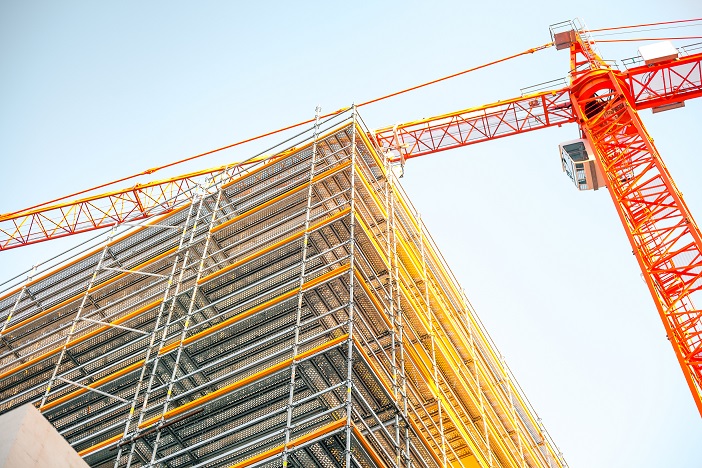Under Construction: Recent legal developments within the construction industry | July 2024
Published on 22nd Jul 2024
The new government and the construction industry, construction insolvencies continue, and are collateral warranties 'construction contracts'?

What might the new government mean for the construction industry?
While there was little in the Labour manifesto which was aimed specifically at construction, a number of areas of focus for the new government are likely to have a significant impact on the industry. As the government begins to set out its legislative agenda, what can we expect for the construction sector?
In our series of pre-election Insights, we looked at a number of sectors and how they are likely to be affected by the new government's policies:
- Our discussion on the impact for the Built Environment sector touched on the government's manifesto policy commitments which concern the UK's planning system, such as updating the National Policy Planning Framework (including the restoration of mandatory housing targets), and the introduction of the concept of the "grey belt". This term is intended to capture poor quality land, including disused car parks and wasteland, that happens to be located in the green belt which the government plans to release for construction of new homes and accompanying infrastructure. UK energy policy is another area of significant opportunity for the construction industry. The development of new energy generation projects and new technologies to tackle the key issues of energy security and decarbonisation is another central focus of the new government, which could provide ample opportunities for the sector.
- The implications for the infrastructure sector includes discussion of the government's manifesto commitments on housing, transport and large scale and social infrastructure. The role of private investment in funding its ambitious infrastructure plans is also considered in our Insight.
New bills relating to planning, energy and infrastructure all formed part of last week's King's Speech, indicating an intention within the government to include these areas of growth and reform within the government's list of priorities. For more on the new government's legislative agenda announced in the speech, see our Insight.
While there are plenty of opportunities for the industry that could follow if the new government is able to make good on its manifesto pledges, some of the problems plaguing the industry may hamper its ability to respond to those opportunities. On the subject of addressing the shortage of construction workers, the Construction Industry Training Board recently reported a need for an extra 251,500 construction workers by 2028 to meet the expected levels of work in the sector. Detail as to how the government might look to address the issue of labour shortages is eagerly anticipated by those in the industry.
Insolvencies continue in the construction industry
According to the latest figures from the Insolvency Service, the construction sector remains the most significant contributor to corporate insolvencies, with 4287 construction companies becoming insolvent in the 12 months to May 2024 (representing 17% of all UK insolvencies).
Reports in the press on the high rate of insolvency point to contributory factors such as the costs of materials and energy, wage hikes, high interest rates and insufficient pipeline. It remains to be seen whether the new government will have an impact on these sources of consternation for construction companies.
Against this backdrop, our Insight on managing distress in UK construction supply chains explores the warning signs of distress and considers the importance of taking early action to significantly reduce the impact on your projects.
UK Supreme Court provides clarification as to whether collateral warranties are 'construction contracts'
In the recent judgment in Abbey Healthcare (Mill Hill) Ltd v Augusta 2008 LLP (formerly Simply Construct (UK) LLP), the Supreme Court has confirmed that a collateral warranty is not a "construction contract" within the meaning of the Housing Grants, Construction and Regeneration Act 1996, unless it contains a separate obligation to carry out construction operations.
The court clarified that merely promising to perform the obligations due under a building contract does not make a collateral warranty a "construction contract". This decision reverses the previous decision of the Court of Appeal and provides certainty that most collateral warranties will not fall within the scope of the Act.
The most significant consequence of this determination is that disputes concerning collateral warranties cannot be referred to adjudication unless expressly provided for.
The City of London Law Society has published a 2024 Edition of its Standard Form Letter of Intent
Hot on the heels of the release of the JCT 2024 edition of contracts, the Construction Law Committee of the City of London Law Society has published a 2024 edition of its Standard Form Letter of Intent (LOI). The previous edition was published in 2007.
The 2024 edition of the LOI retains the key principles of the 2007 edition, including:
- identifying the intended form of building contract to be entered into by the parties and the remaining points to be agreed;
- setting out the limited activities the contractor is instructed to carry out pursuant to the LOI;
- confirming the mechanism for payment of those activities and limits the amount paid by the employer to a maximum sum; and
- setting out grounds upon which the LOI may be terminated and a date by which it expires.
The key changes relate to the structure of the LOI. It now includes a table of particulars to be populated with project-specific information with the intention that there should be no need to amend the operative provisions contained in the numbered paragraphs of the LOI. The LOI is also updated to address the new dutyholder roles under Part 2A of the Building Regulations.
The guidance note to the LOI also expressly acknowledges the new regulatory regime under the Building Safety Act 2022 and highlights that the parties should carefully consider whether it would be appropriate to instruct the commencement of works on site under the LOI, particularly for higher-risk buildings, where certain regulatory conditions have to be complied with before construction can commence.
You can download a copy of the LOI (which includes the guidance note).














